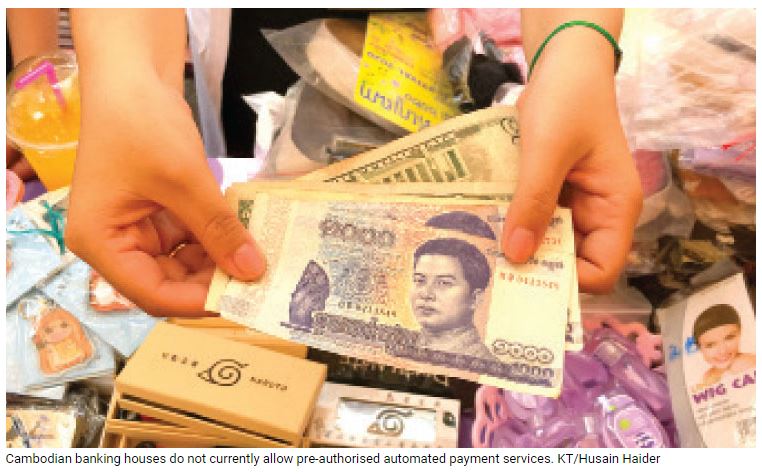Cambodia: Banks need integrated automated payment system
Cambodian banks must integrate automated payment processing, according to Sabay Digital Corp’s co-founder Mike Gaertner.
Its absence is a gaping hole in the Kingdom’s financial services. As a result, the Kingdom is notably left out of crucial consumer behaviour shaping the 21st century, including subscription services.
“Introducing automated payment processing is the single-most important thing the banking industry can do for Cambodian businesses,” Gaertner, who is also Sabay Digital’s chief operations officer, told Khmer Times.
Consultancy firm McKinsey & Company said in 2019 that 46 percent of people surveyed paid for online streaming services, such as Netflix or Spotify, that utilise recurring payment billing and pre-authorised withdrawals.
The lack of automated payments extends beyond payment for services. Firms are also unable to automatically process payrolls, inflating company accounting and payroll departments.
While those living in Cambodia can still subscribe for services like BIMA micro insurance (via their Smart account), banks lack the back-end support to allow firms to regularly draw amounts out of consumers’ accounts for payments with consent.
Pre-authorised automated payments, which are already the norm in many countries, grant firms recurring revenue.
It also reduces the risk of people being late on loan repayments, lowers overheads for accounting offices at firms and ensures that companies can collect recurring payments.
“In terms of the big picture and Industry 4.0, the lack of full automation in the banking industry is holding back a lot of firms,” Gaertner said.
He added that the Kingdom is already well-positioned for payments with the National Bank of Cambodia’s Bakong application.
“There is a big shift towards digital payments, but what we really need is the ability to charge a lot of customers smaller amounts on a regular basis,” he added.
The answer in providing automated payroll processing lies in application programming interface (API). Already, firms including Stripe, Huawei and Square have entered the space with their own APIs.
Stripe, reportedly valued at $95 billion, is considered to be the most valuable private firm in the world, according to Bloomberg.
Sabay’s Secure Settlement Network (SSN) is Cambodia’s answer to Stripe. The firm allows the recording and verification of payments by banks and merchants through a customised version of fintech firm Stellar’s API.
Earlier this year, Ukraine chose Stellar as its network to help build the country’s central bank digital currency. Stellar also notably got its seed funding from Stripe.
Gaertner said that SSN is a “blockchain-based ledger”, adding that the service acts as an intermediary between banks or payment services to manage payments and invoices.
“SSN knows what happens, but the third party, like Bakong for example, transfers the money. Any bank can join it and they would have access to any merchant to use it immediately,” he said.
“Banks need to integrate instant transfers allowing service providers to collect automated payments and there is really no reason that this service is not available. It will be extremely difficult for Cambodia to move forward without this service,” Gaertner added.
Source: https://www.khmertimeskh.com/50831790/banks-need-integrated-automated-payment-system/


 Thailand
Thailand




